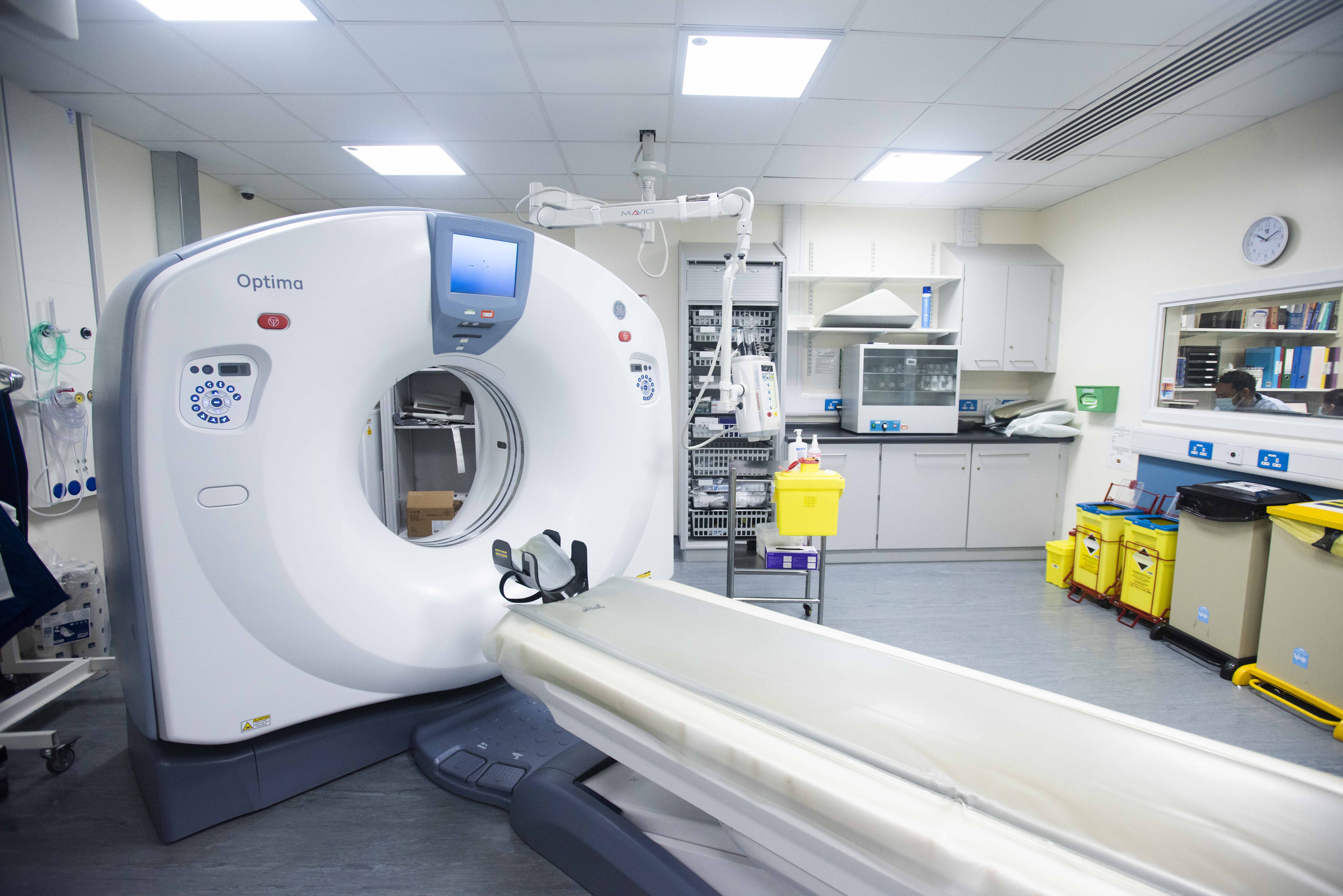Head and Neck Rapid Access Clinic
Information for head and neck patients on a cancer pathway
This leaflet aims to help answer questions you may have; from your referral to your first appointment, the investigations you may need to have, and what happens when we have your results.
What happens now?
You have been referred by your GP or dentist to see a head and neck consultant at the hospital’s Rapid Access Clinic, as they have concerns about your symptoms.
There are many common conditions that these symptoms can be linked to, including the possibility of cancer. The Rapid Access Clinic aims to quickly investigate your symptoms, and find out if there is a problem as soon as possible.
After meeting with you in the clinic, your consultant may decide you need some diagnostic tests, which are listed on the next page. These tests will help us to diagnose or rule out certain head and neck conditions. The results will help us to decide your best treatment options going forward.
What diagnostic tests might I have?
Following your appointment at the Rapid Access Clinic, your consultant may decide you need to continue with investigations on an urgent cancer pathway. This is because the consultant wants to complete the investigations urgently, as your symptoms can be caused by differing conditions including cancer, and we would like to make a diagnosis as soon as possible.
We will try to arrange for the investigations to be completed at your nearest hospital; but this is not always possible. It is important that you are available to go to all your appointments, even if they are at short notice. Please make sure that we have your correct telephone numbers, so we can contact you.
The diagnostic tests that you may be referred for are described below, but you may not need all of these tests.
Blood tests may be done at or after your clinic appointment.

CT (computerised tomography) scan. You will need a blood test before you can have a CT scan. You will be asked to lie on a table which will then pass through the CT scanner. The scanner takes x-rays, which build up a highly detailed and accurate image of the inside of your body. Your specialist, doctor, nurse, or the Radiology Department will be able to tell you more about having a CT scan.
An ultrasound scan creates pictures of your neck, and helps us to see if there are any areas that are abnormal.
Your doctor may need to take a sample (biopsy) of the abnormal area seen during your examination.
An MRI scan may involve you having an injection then going into a narrow scanner. The scan takes approximately 20 minutes. It is particularly useful for assessing soft tissues in the head and neck.
An MRI scan might not be appropriate if you have a pacemaker or cardiac defibrillator, or metal in your head or neck.
PET (positron emission tomography) CT scan needs you to have a low-grade radioactive tracer injection before your scan, so that abnormal activity can be seen in your body. It is similar to a CT scan but can give additional information.
For more information on the scans listed above, go to the Trust's Radiology web page or speak to the Cancer Pathway Navigator on 01227 206759.
When will I get the results of my tests?
This varies for each test, but when your test results are available one of the team will discuss them with you. This may be by telephone or they may ask you to come into the hospital.
Please be aware that telephone calls from the hospital will come from a withheld number.
Will I need an operation?
Depending on the results of your consultation and the above tests, an operation may be recommended to make a diagnosis. If you agree, you will be added to the operation waiting list. The amount of time you might need to wait for an operation depends on the clinical priority of your condition. Procedures to make a diagnosis where cancer might be a possibility, or where an operation is being performed to treat cancer, will happen as quickly as possible.
The aim of an operation is to:
assess your head and neck further; and
take a tissue sample from areas that cannot be easily biopsied in the clinic.
What operation will I have?
The types of operation available include the following.
Microlaryngoscopy
Your voice box is assessed using metal tubes through your mouth and a microscope. This is done under general anaesthetic (you are asleep for the procedure).
Panendoscopy
Your whole throat is assessed, and this sometimes includes the back of your nose and your oesophagus as well. This is also done under general anaesthetic.
Excision of neck lumps
This may involve removal of lymph nodes, cysts, masses, thyroid gland, parotid gland, and submandibular gland. This is usually done under general anaesthetic.
Each patient will need different investigations depending on their symptoms. You will be given more information at your Rapid Access Clinic appointment about which investigations you have been referred for. The details of which investigations you will have, will also be in your appointment letter.
We understand that patients may have concerns about coming to the hospital or about their investigations. If you do have any concerns or questions, please contact the Cancer Pathway Navigator on the number listed below.
Contact details
Please contact our Cancer Pathway Navigator if you have any questions regarding your investigations or appointments. We would like you to have the investigations completed as soon as we can arrange them. We do understand that sometimes this can be difficult, and we would like to try and help you with any concerns.
The Cancer Pathway Navigator will not be able to give you the results of your scans, but they will be able to liaise with your consultant.
Cancer Pathway Navigator
Telephone: 01227 206759